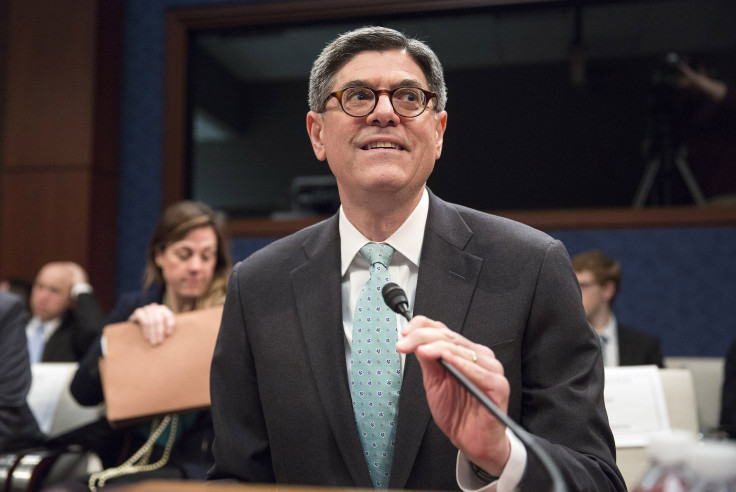Strong US Dollar Is A 'Good Thing,' Treasury Secretary Jack Lew Says

Treasury Secretary Jack Lew reaffirmed his stance Friday that a strong United States dollar is a "good thing." In a speech to students and businessmen on the Wolfson campus of Miami Dade College, he said the currency's rise proves the vitality of the American economy, the Financial Times reported.
The U.S. dollar is stronger now than it has been since the beginning of the Great Recession, according to previous International Business Times reporting. The dollar index, which measures its value against a basket of foreign currencies, was at about 98.2 on Friday morning. A year ago, it was 80.2.
This means American consumers can buy imported goods for lower prices and spend less when traveling abroad, the Washington Post reported. But on the other hand, it makes international consumers pay more for U.S. goods -- which overall can hinder the growth of the American economy. It also discourages inflation.
Lew's comment on the strong dollar was not necessarily a smart move, currency strategist Alan Ruskin told the Financial Times. "He is now going to get quizzed consistently as the dollar strengthens on whether the strong dollar is still good for the U.S.," he said. "In this instance I assume he was trying to defend a view that U.S. industry leaders should adapt to a stronger currency and implicitly that it is here to stay."
The "strong dollar" phrase has been in use for more than 20 years, at least since former Treasury Secretary Robert Rubin's work under President Bill Clinton. The phrase is referenced six times in two versions of this year's Federal Reserve Board's beige book, officially titled the Summary of Commentary on Current Economic Conditions, according to Bloomberg Business.
"The strong dollar, as all my predecessors have joined me in saying, is a good thing. It's good for America. If it's the result of a strong economy, it's good for the U.S., it's good for the world," Lew told CNBC in January. "If there are policies that are unfair, if there are interventions that are designed to gain an unfair advantage, that's a different story."
© Copyright IBTimes 2024. All rights reserved.





















